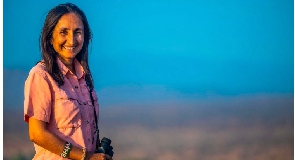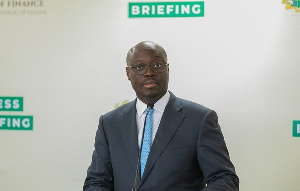In a remote wilderness in Samburu County, Kenyan wildlife biologist Dr Shivani Bhalla has championed community-driven lion conservation for more than 15 years. In April 2023, Dr Bhalla and Ewaso Lions, the organisation she founded, won the prestigious Whitley Gold Award known as the ‘Green Oscars’ in conservation circles. She is only the third African woman to win the prize in 30 years.
The UK-based Whitley Fund for Nature (WFN) wildlife charity supports conservation leaders in the global south finding local solutions to environmental problems. The annual Whitley Gold is the most significant of seven award categories and has a cash prize of £100,000 (Sh1.84 million).
Dr Bhalla and six members of Ewaso Lions team accepted the award in London from Princess Anne of Britain, patron of WFN.
“This was not my award but a team award...,” she said, having first won the Whitley in 2014, with continuation funding in 2016.
Dr Bhalla, 45, strikes an unusual picture of a petite Indian lady living in the wilderness. “As an Asian, initially, people in Samburu were a little suspicious of me, including my own family, who thought this (her initiative here) was not normal for a Kenyan Indian,” she said, pointing out that being a Kenyan national and able to speak Swahili eased her interaction with local communities.
Born and raised in Kenya, Dr Bhalla has been passionate about wildlife since childhood. While conducting undergraduate field research on cheetahs in 2002, she was unable to find a single cheetah for three months, yet saw lions every day. She therefore switched to lion research for her Master of Science studies but came away with so many unanswered questions that lions became her life’s vocation.
Statistics show that Africa’s lions have declined by 40 percent in the last 20 years and occupy only 8 percent of their historical range. The Samburu lions were elusive, and Dr Bhalla suspected they were drifting in and out of Samburu National Reserve into occupied areas, presenting a potential risk.
“Generally, lions are safe in parks, but outside, they come into contact with people and become threatened,” said Dr Bhalla, who has a PhD in Zoology and Animal Biology from the University of Oxford. “To secure a future for lions, I needed to work with the people,” she explained. Her focus shifted from lion research in a national park to lion conservation in community lands. She founded Ewaso Lions in 2007, a 100 percent Kenyan organisation based in Westgate Community Conservancy.
The hallmark of Ewaso Lions’ success in conservation is the Warrior Watch programme conceived in 2010 by Jeneria Lekilelei, a young field scout who is now director of community conservation. Youth from the warrior-age class that is historically unsympathetic towards carnivores are trained to protect lions through field monitoring and advocating for peaceful coexistence with wildlife.
Lekilelei says their conservation message is directed at all demographics in the community – warriors, elders, women and children. “We bring in wazee (elders) to talk about our histories and the cultural value of wildlife, how sometimes lions ate our cattle and we would tolerate this because of our culture,” said Lekilelei. “By explaining how few lions there are in Samburu and the rest of Kenya, people now understand the true situation which has brought change.”
The Warrior Watch covers 11 conservancies and three national reserves, an area of over 4,500 km2. “There are more lions around us and people can hear them roaring very close to the villages unlike before,” said Lekilelei. A record 50 lions were documented in 2022 up from about 11 in 2007, a stable population according to Dr Bhalla.
Samburu women are actively involved in Ewaso Lions’ conservation work even though traditionally they have no role in governance or decision-making outside the home. “In our culture, wildlife belonged to women, and we wanted to reclaim that role of conservation,” said Munteli Lalparasaroi, a Samburu woman. She is the brainchild of Mama Simba, a programme of Ewaso Lions since 2013 whose aim is to restore the historic role of women as wildlife guardians.
Mama Simba ladies are responsible for habitat restoration through replanting grass, digging waterholes for wildlife in the dry season and clearing invasive trees degrading the grasslands. “If there is low grass, there are less herbivores, therefore the lions will prey on our livestock.”
Dr Bhalla will use the prize money to create a universal framework for community-led conservation, created in collaboration with conservationists from other countries.
“The toolkit will not be tailored just for lions or made for Africa, anyone around the world can use it,” she said, adding, “Safeguarding natural resources and wildlife is the primary responsibility of Kenyans, not someone from the outside to come and do it for us,” she concluded.
Africa News of Monday, 11 September 2023
Source: thecitizenafrican.co.ke













